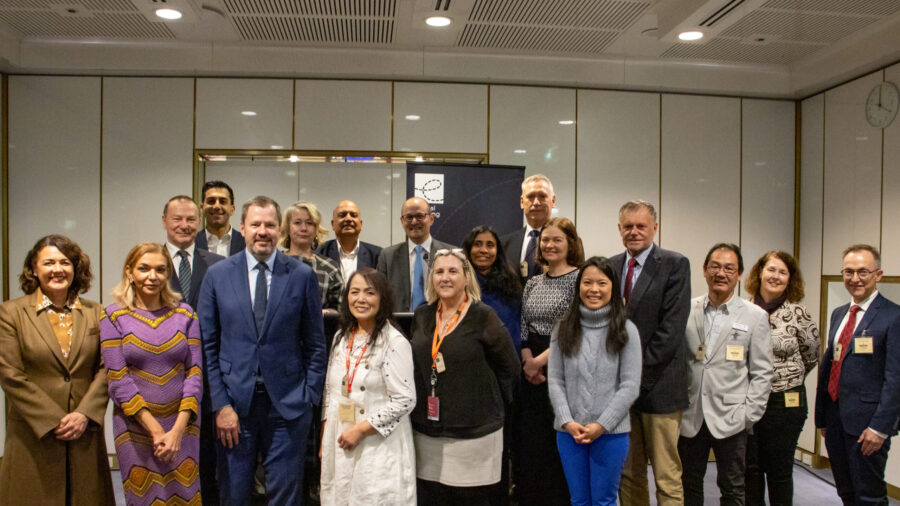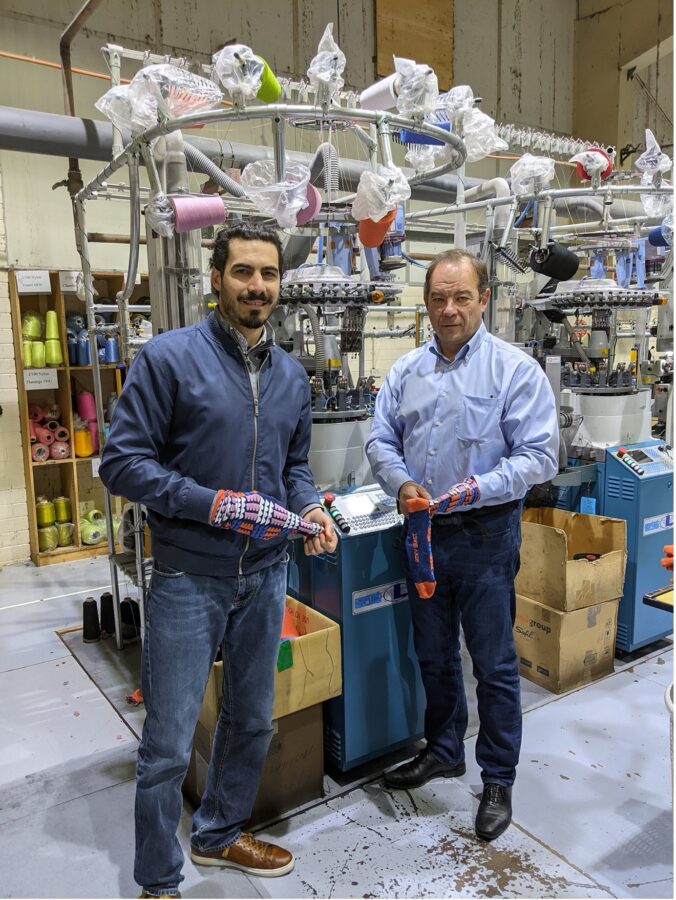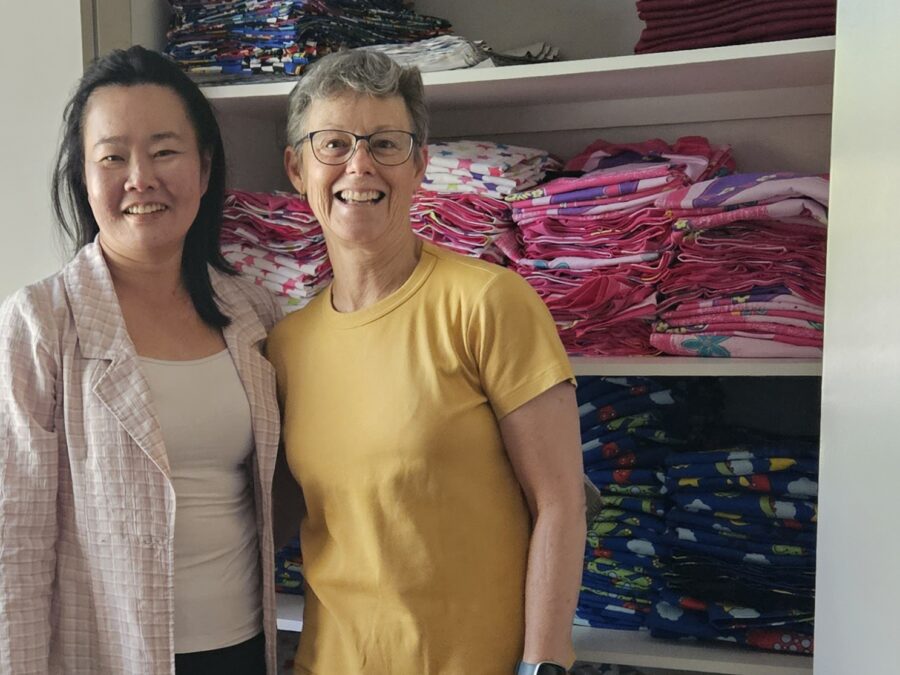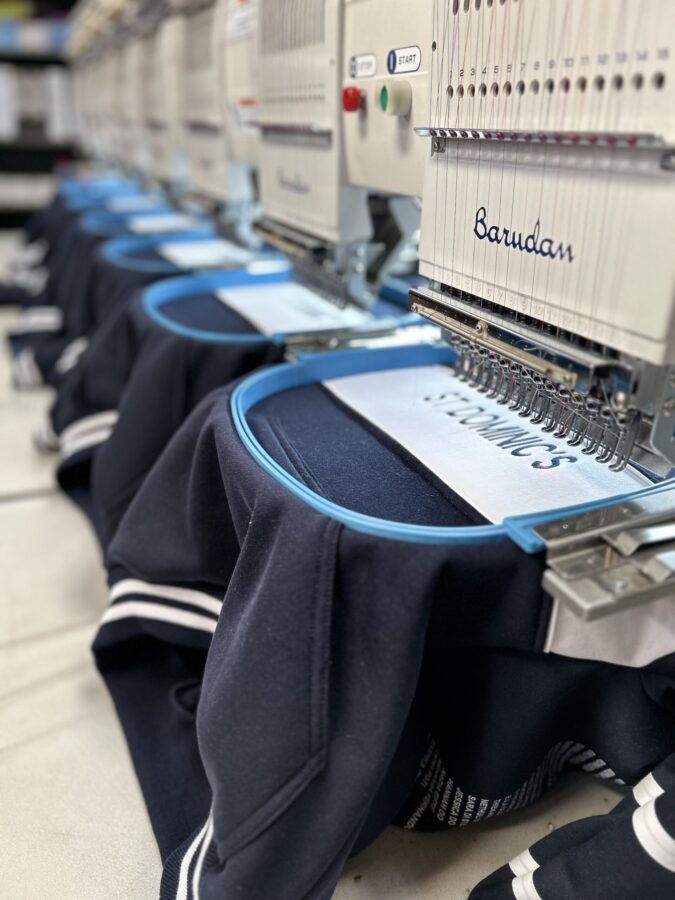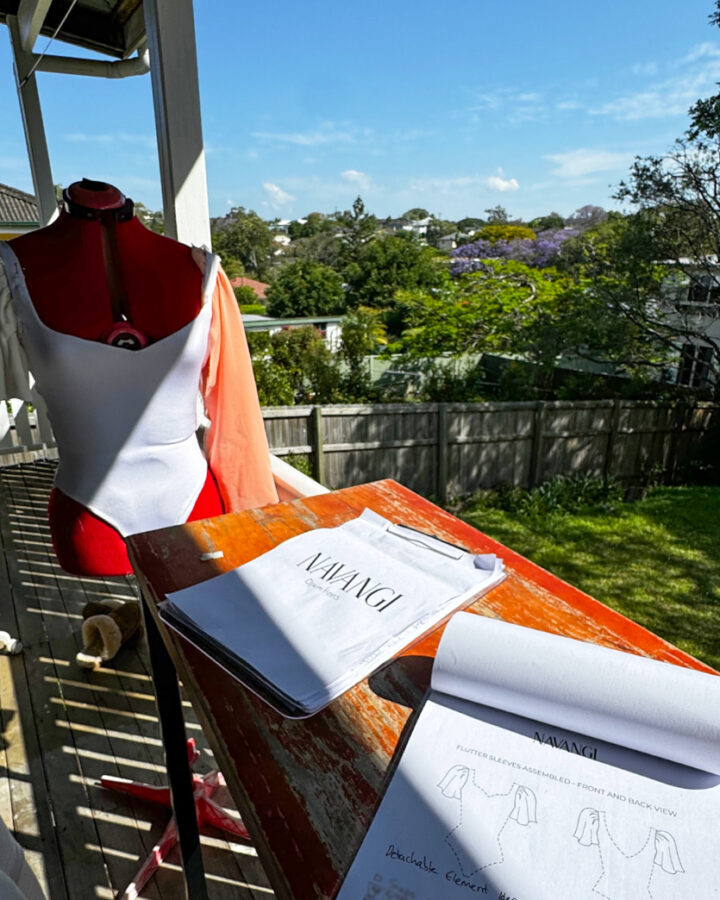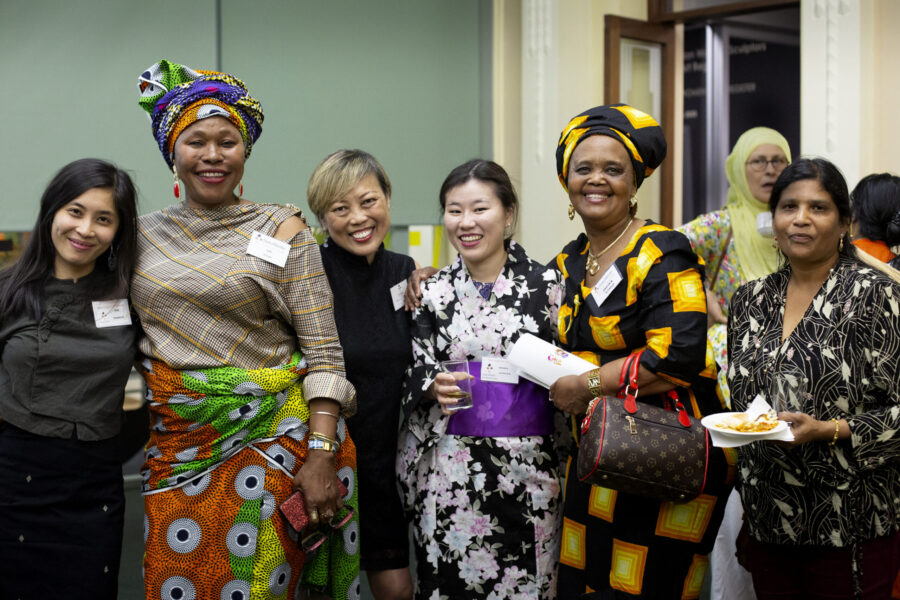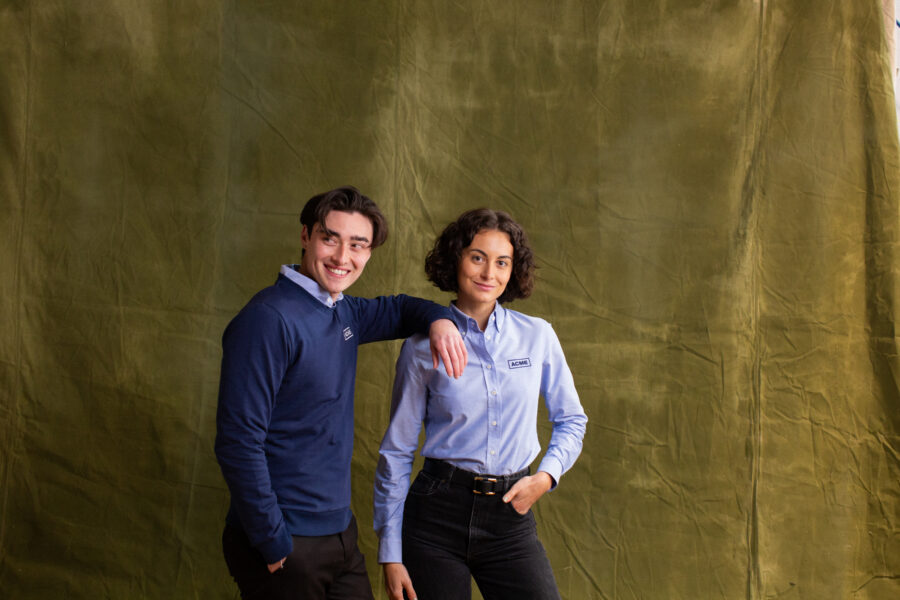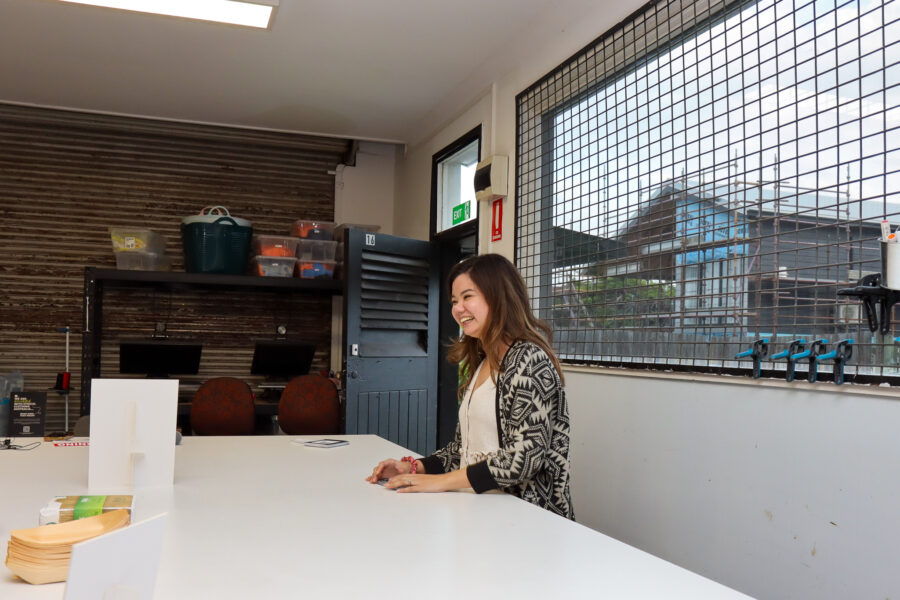The Ethical Fashion Experience
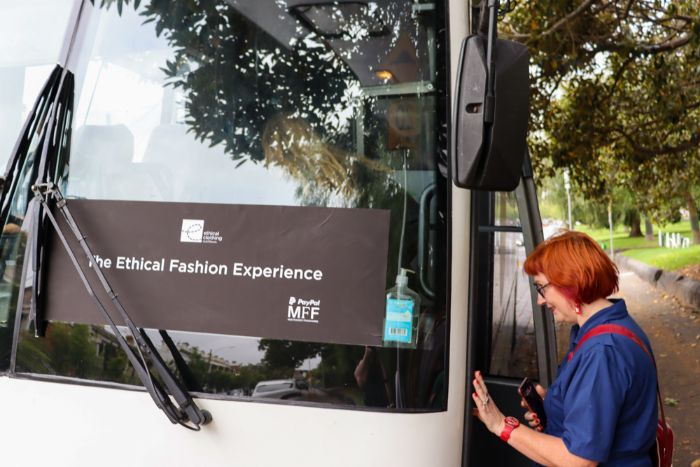
Event
On the bus: Our tour around Melbourne’s thriving garment industry!
Fashion week is a time of glamorous runways and incredible outfits, but we all know that a lot goes on “behind the seams” – any garment that goes down the runway is the product of a whole network of highly skilled people who often go unseen.
On Saturday 2 March the team from Ethical Clothing Australia were joined by a busload of amazing guests for “The Ethical Fashion Experience,” a tour around Melbourne’s thriving textile, clothing and footwear industry as part of Melbourne Fashion Festival’s Independent Programme.
Our accredited businesses generously opened their spaces to share the often-unseen effort and skill that goes into creating ethically made garments – everything from concept and design through to technical production. The day finished with an insightful “in conversation” around designing for a garment’s end-of-life process.
To give you some more insights and keep the conversation going, we’re sharing takeaways from each stop on the tour! You can also see photos from the day over on our Facebook.
Because we’re unseen, people don’t realise that we’re the nexus.
Glen Rollason, Director of RB Patterns
A BEAUTIFUL SYSTEM OF CARE – RBPATTERNS
At our first stop of the day, RBPATTERNS, guests were given their first look of fashion, with studio lead Glen Rollason explaining the work that he and business partner Scott Bowring do as, “If (making garments) is a recipe, then these are the ingredients.”
Glen explained the process of digitising, plotting and printing patterns, while Scott gave a live demonstration of their large-scale print machine. Glen also spoke about their commitment to ethical practices when it comes to working with machinists and garment workers, detailing the ways they create a safe and respectful environment through flexibility, communication and fair work practices.
“It’s a really beautiful system of care that suits how they want to work,” said Glen.
One of the tour guests asked Glen: “Where do you see the future of fashion in Australia?”
“Hopefully the future of fashion is the people that are we are employing right now at the beginning of their career,” said Glen. “We know we need to focus on training people because the concept of the workroom is the thing that is currently missing from fashion. Because we’re unseen, people don’t realise that we’re the nexus.”
MAKING A CHOICE – NEXT STATE
The fashion industry is big, but it’s also possible to foster strong communities through fashion! On the way to digital textile printer Next State, one tour guest said she had recently had a tablecloth printed for an upcoming market. Another guest, who is in the process of launching her own label, was wearing a dress that she had had test printed through Next State.
Next State founder Chole Kerr spoke to guests about how these connections are essential to their business and an obvious benefit of manufacturing locally. “I think in Australia you have to be accessible, because there’s a growing need for customisation,” she said. “Being local, we can help so much more to get the best results and we can be really transparent with our process.”
“It makes the micro businesses we work with really powerful.”
Chole also spoke to guests about what an accreditation from Ethical Clothing Australia means for their business.
“We don’t just say that we do the right thing. We’re making a choice. We won’t contribute to a system that contributes to systemic abuse.”
INDUSTRIAL BEAUTY – VINCE CLOTHING
For our third stop on the journey, guests were given a tour of working factory Vince Clothing, a denim manufacturer. One guest said it was amazing to see “the “industrial beauty” of the factory – a place that consumers would never normally have access to – and understand more about the many hands that make a garment.
Director Vinh Le and Administrator Hanh Le showed us some of the technology they utilise to reduce wastage and ensure quality control, including automated fabric cutting and pocket makers. Some of our guests even got to take home a back pocket of their own!
IT’S ABOUT MAKING OPPORTUNITY – THE SOCIAL STUDIO
After a quick lunch stop, we visited The Social Studio – a social enterprise, manufacturer and retail space – for a tour of their workroom.
Production Manager Lois McGruer-Fraser shared some of the pieces the studio had been working on, which included bucket hats, tote bags and fashion for First Nations art centres, other social enterprises and independent makers and designers. “I enjoy being in this part of the industry that is often overlooked,” she said.
The Social Studio has a strong focus on social responsibility, providing training and employment for people from refugee and asylum-seeking backgrounds. Lois told our guests, “Fashion isn’t about just making money, it’s about making opportunity.”
She also reflected on the benefits of manufacturing locally and building a strong network, pointing out that The Social Studio works with other accredited brands like RB Patterns and Next State. “With local manufacturing, you can be a little more reactive, work closely and think up ways of solving problems.”
“Melbourne has a fantastic network,” she said. “It’s not just about clothes, it’s about working with people.”
I can’t separate building a business that is based on sustainability without thinking about the humans involved – those two things are inherently linked.
Courtney Holm
DESIGN WITH THE END IN MIND – COURTNEY HOLM
We can’t think about the life of an ethically made garment without considering what happens at the end. To bring the journey to a close, guests headed back to the Ethical Clothing Australia offices for an “in conversation” session with circular fashion designer, thought leader and entrepreneur Courtney Holm.
“Design with the end in mind,” she said, speaking about the focus of her experimental fashion label A.BCH. Whether a piece goes on to be pulled apart and made into a new garment or composted at the very end of its life, end-of-life plans must be embedded into the design and manufacturing process from the outset.
For this reason, Courtney said that materials are everything. “The quality of the sourced materials are incredibly important,” she told us. “We can’t put low quality feedstock in and expect something better to come out.” She emphasised that when we invest, as both consumers and businesses, in the highest quality materials, we ensure opportunities for circular textile-to-textile recycling rather than the downcycling that can occur with mixed fabrics.
Courtney also shared more information on her venture Circular Sourcing: a digital sourcing platform for high quality deadstock fabrics and quality surplus materials.
“We want to create access to high quality materials for smaller brands that may not otherwise have capacity to purchase through the original sellers at the quantities needed,” she said.
Finally, Courtney shared her approach to ethical production in circular design.
“I can’t separate building a business that is based on sustainability without thinking about the humans involved – those two things are inherently linked.” At the end of the day, we asked a few of our guests what they had enjoyed most about the tour, and what they had learned! Here are some of their answers…
I really loved the fact that we were able to go into the factories. A lot of them I’d heard of before, but I hadn’t had the opportunity to go in. So not only to be able to engage with the people who own those businesses, but also to see their businesses was a really, really great opportunity. – Nicole
As a fledgling designer who’s just getting started in the industry, today I learned that is not only possible to make ethical clothing in Australia but that it’s affordable and accessible. – Meg
I really enjoyed meeting lots of people with different backgrounds but a similar reason for being here. Making those connections has been fantastic. I’ve loved all the places we’ve visited today – I want a job at all of them! It’s just so inspiring to see that there’s such good places to work. – Kate
My favourite thing about today was getting to spend so much time with people who all share the same passion about ethically sourced fashion and knowing we have so many places in Melbourne we can go to if you are looking for something really specific in terms of manufacturing, pattern making, digital printing, social opportunities. It’s been a brilliant day. – NaomiThank you to accredited businesses RBPATTERNS, Next State, Vince Clothing, The Social Studio and Courtney Holm from A.BCH for sharing your spaces and your knowledge! And thank you to our guests, who brought so much enthusiasm to “The Ethical Fashion Experience.”
Related articles
Explore more insights, updates and stories from across Australia’s ethical and local manufacturing industry.

